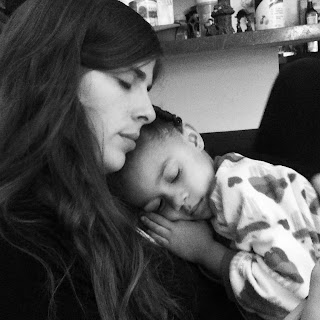1. Netflix: I am excited about this new resource for discussion:
2. Blackish: our family enjoys this show, and the conversation it brings:
3. Book: Little Leaders--so excited this book is mine:)
4. Instagram: whitegirllearning read and posted about a book (with quotes!) written by a POC (Person of Color) each day for the month. I appreciate the time and energy she put into it, and her Instagram account in general, but one quote she posted left me undone. And all month, I have returned to this one post:
"Between the Christianity of this land, and the Christianity of Christ, I recognized the widest possible difference--so wide, that to receive the one as good, pure, and holy, is of necessity to be the enemy of the other. I love the pure, peaceable, and impartial Christianity of Christ: I therefore hate the corrupt, slaveholding, women-whipping, cradle-plundering, partial and hypocritical Christianity of this land. Indeed, I can see no reason, but the most deceitful one, for calling the religion of this land Christianity." Fredrick Douglass, in his book "Narrative of the life of Frederick Douglass, an American Slave"
My first thought was "well of course he thought that, because SLAVERY! Thank God we don't have that today..." But honestly, the evil in the world is the same, and the distance between cultural Christianity and Christ's Christianity, even without the ugly blatant slavery, is still the same. It is an important perspective to hold--as a Christian--that I do not hold to the "Christianity" of this land. For me, it is I think easier for me to see in Brazil, where I am a bit more removed from the culture, and can see clearer the differences between culture and Jesus-following.
I read many history books growing up that gave me the idea (perhaps just the impression I got on my own?) that America was somehow better because of our Christian heritage (except SLAVERY, which seemed to be skimmed over pretty quickly). Now that slavery is a part of my story, it doesn't go away so quickly, and history doesn't seem so simple.
Now I tell my girls about how we don't know.We don't know how we have the name "Ferguson," and how it traveled from Ireland to Jamaica, and if it was just given to us from a slave owner, or how that happened. We don't know more about great-grandpa Ferguson, because he had to run away after he got a white woman pregnant: we don't know anything more about their story, except thank goodness for Grandma Hudson (the white woman's grandma), who raised Grandpa Ferguson.
Maybe that is the problem with Black history month: we just don't know. We don't know what to do (or not do) about it as white people. We (all) don't know what to tell our children. And I can only imagine the feeling of loss over all that we don't know that my black friends are experiencing.


















